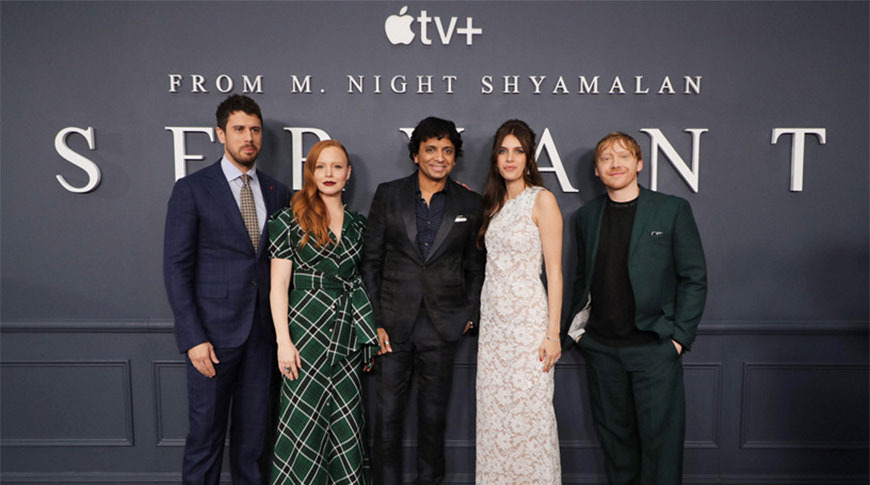A federal judge on Thursday dismissed a lawsuit that accused Apple and director M. Night Shyamalan of copying key aspects of the 2013 film "The Truth About Emanuel" with the Apple TV+ original "Servant."
In a ruling handed down to the U.S. District Court for the Central District of California, Judge John F. Walter said "Servant" is not similar enough to "The Truth About Emanuel" to warrant a copyright claim, reports Variety.
"In sum, the alleged similarities between the works pale in comparison to the differences in the plot, themes, dialogue, mood, setting, pace, characters, and sequence of events, and the Court concludes that the works at issue are not substantially similar as a matter of law," Walter wrote.
Filed in January by Francesca Gregorini, writer and director of "The Truth About Emanuel," the suit alleged "Servant" not only stole the plot of the film, but also aped production and cinematography choices.
"[The] plot description of 'Emanuel' could just as easily be applied to 'Servant,' made six years later. And that's just the beginning of the commonalities between the two works," the original filing reads. "These similarities include not just parallel plot points, but also strikingly similar — and highly idiosyncratic — characters, scenes, directorial choices, and modes of storytelling."
Both works center around a mother who cares for a doll as if it were a real child, and focuses on her relationship with a hired nanny. Like "Emanuel," "Servant" deals with grief and emotional attachment after a tragic loss, Gregorini argues.
While the shows have similarities, Walter said sharing a premise does not constitute a violation of copyright law.
"Beyond this unprotectable shared premise, the works' storylines diverge drastically and quickly," he wrote.
Further, major plot points in "Servant" significantly deviate from "Emanuel," with the judge noting the overall tone of the two productions are largely different.
Walter dismissed the suit with prejudice, but Gregorini vowed to appeal in a statement to Variety:
"Today's ruling is disappointing, but not surprising. The balance of power in the entertainment industry has always favored powerful men and institutions. Their ultimate goal is to silence anyone whose work they steal and repurpose without credit."'The Truth About Emanuel' is a very personal labor of love. It took me years to write, finance, and direct. To have all that work stolen is not only hurtful, it disregards all the hard work needed to bring Emanuel to the screen. Unfortunately, this is the status quo in the entertainment industry. Powerful, mostly male, forces work to take what they want from other creators and repurpose it as their own. Throughout this process, I've heard from countless other filmmakers whose work has been stolen without permission. And this is M. Night Shylaman's third time being accused of unlawfully taking others' work. Where there is smoke, there is fire.
"My case is an attempt to hold those powerful forces accountable and protect the work of so many talented voices who are not as rich and powerful as M. Night Shyamalan. I hoped for a different outcome. I will not allow this to silence me. I intend to appeal this ruling and continue to make my case that Servant' and The Truth About Emanuel' share similarities that were undoubtedly and knowingly plagiarized."
 Mikey Campbell
Mikey Campbell




-xl-m.jpg)


-m.jpg)






 Amber Neely
Amber Neely
 William Gallagher
William Gallagher
 Malcolm Owen
Malcolm Owen

 Mike Wuerthele
Mike Wuerthele


 Thomas Sibilly
Thomas Sibilly








5 Comments
Both draw heavily on underlying ideas first established in Pinocchio.
The plaintiff's original claim was so absurd that it's like they never even saw Servant. The only similarity between the two is that it involves the concept of living doll. Which by the way it not an entirely original thought either. The idea of haunted or living dolls is so unoriginal that it's Biblical, literally: https://en.wikipedia.org/wiki/Golem
I don't even think MNS took inspiration - they're just not similar stories at all. Copyright is a serious matter and if there is any fact to the matter it would be considered more deeply.